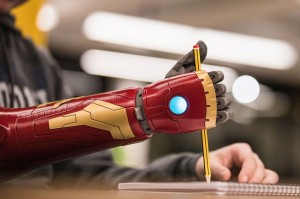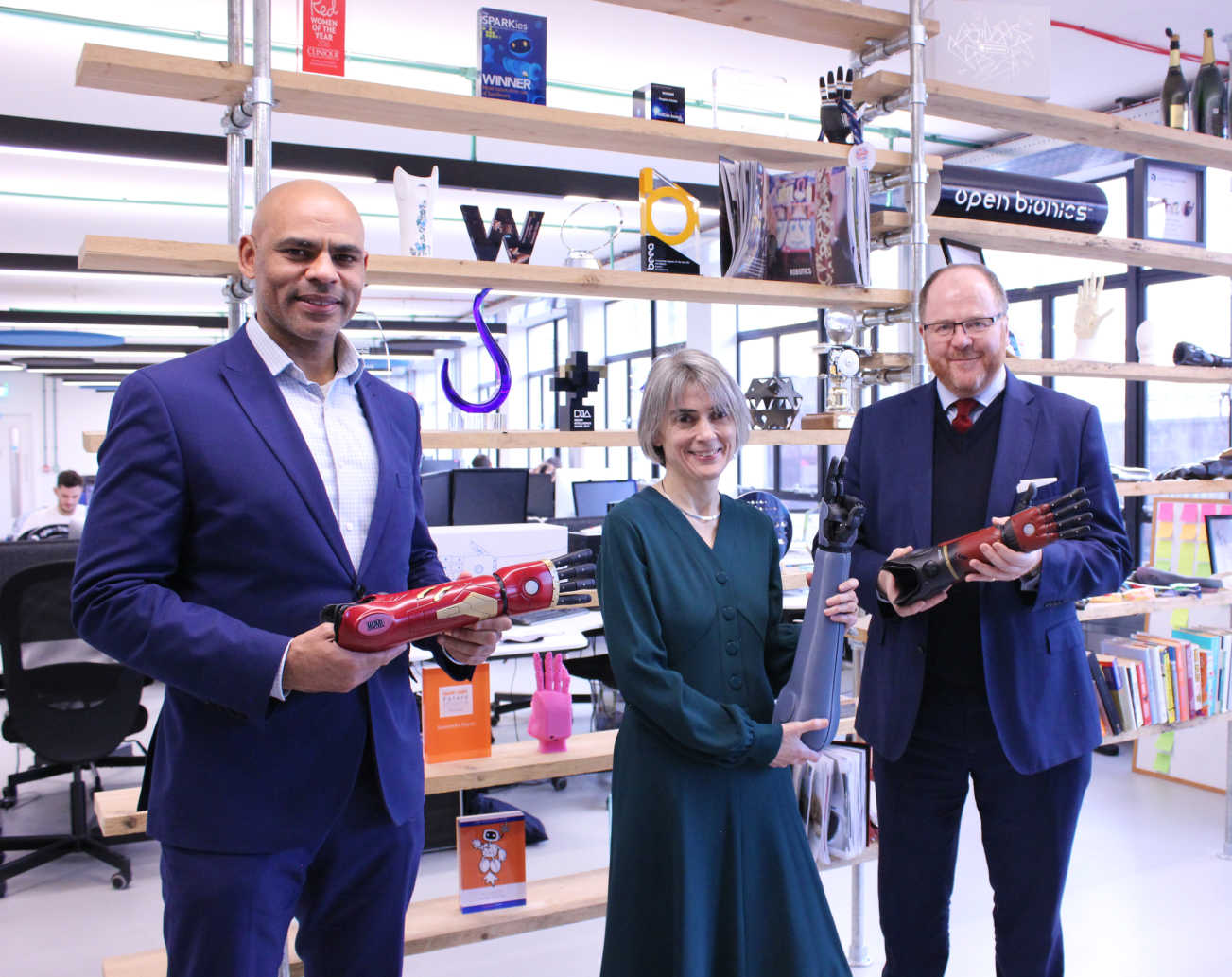The Bristol firm behind the world’s first medically approved 3D-printed bionic arm has demonstrated its products to the UK’s science minister on his visit to the city’s science and tech innovation cluster.
Open Bionics showed George Freeman the production space where its life-changing Hero Arm for amputees is made using innovative 3D printing technologies. 
The minister and other visitors found out how each bionic arm is custom made for adults and children from eight years old, while also seeing how 3D scanning, 3D modelling, and automation play a critical part in ensuring the bionic prosthesis fits like a glove and offers optimal comfort.
The Hero Arm, pictured, which is available to adults and children aged eight and above, can grab, pinch, high-five, fist bump and give a thumbs-up. It is now also available in Europe, Australia and New Zealand.
Open Bionics is now working with dozens of people with upper limb differences in the UK who are actively crowdfunding for their Hero Arms, and hundreds more who are waiting patiently for the NHS to adopt the technology.
Some hospital patients who have lost limbs as a result of Covid-19 have been left in a position where they have to launch crowdfunding campaigns from their hospital beds to access technology already available across national health services in Europe, Russia, Australia, and America.
Also on the visit were Mayor of Bristol Marvin Rees along with government officials, including UKRI CEO Prof Dame Ottoline Leyser, Innovate UK CEO Indro Mukerjee and BEIS director general, science, innovation & growth, Jo Shanmugalingam.
Mr Freeman said it was fantastic to see the excellent work being done in quantum computing, robotics, artificial intelligence and bionics in Bristol.
“The depth and breadth of UK research excellence, coupled with our financing ecosystem for high-growth companies, makes the UK a global powerhouse in innovation,” he said.
“Nowhere illustrates that better than the Bristol Gateway Cluster, where companies like Open Bionics are combining excellence in robotics, life science, materials, design and advanced manufacturing to develop ground-breaking prosthetics.
Mayor Rees said he was proud to meet the Open Bionics team and to highlight some of Bristol’s science and tech innovation during the minister’s visit.
“A focus on delivering life-changing technology to people who need it at an affordable price sets Open Bionics apart and it was exciting to hear about the new projects they have in the pipeline,” he added.
Open Bionics co-founder Samantha Payne MBE welcomed government support and resources to innovate processes but said she wanted to see more adoption of technologies across the health service.
“Currently, NHS policy change is still not keeping pace with technological improvements, which means medical devices like the Hero Arm are not accessible to all and have to be privately funded for.”
Open Bionics was founded in 2014 by Samantha and Joel Gibbard MBE with the goal of developing affordable, assistive devices that enhance the human body.
Pictured on their visit to Open Bionics, from left: Mayor of Bristol Marvin Rees, UKRI CEO Prof Dame Ottoline Leyser and science minister George Freeman































